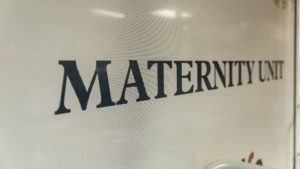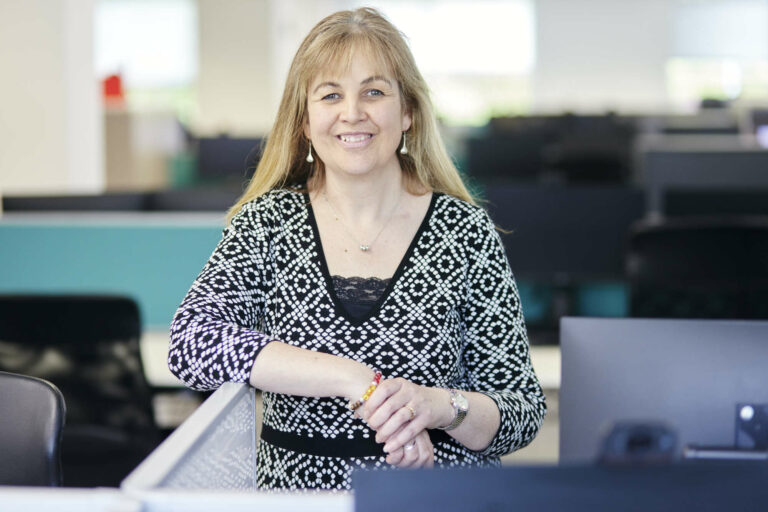
We produced a guide in early 2022, which summarised the last 20 years of maternity scandals in England and Wales. One of the hospitals featured in our summary was East Kent Hospitals University NHS Foundation Trust.
Today the final report (which can be read here) from the independent inquiry led by Dr Bill Kirkup has been published. We have summarised its findings below.
BACKGROUND
The local CCG first raised concerns about the maternity care at East Kent in 2013. This was followed by The Royal College of Obstetricians and Gynaecologists audit in 2015, which also identified significant issues. Unfortunately, both times the concerns were not acted upon meaning opportunities to improve care almost a decade ago were missed.
The Trust came under the spotlight again in January 2020, following the inquest of Harry Richford. The Coroner concluded his death was due to neglect by the Hospital as a result of 7 gross failings.
Briefly, Sarah’s labour didn’t progress and she was given medication to speed up her contractions (the Coroner found she was overdosed for 10 hours). Her care was provided by midwives and a junior doctor – at no point was she seen by a more senior doctor or consultant. After 25 hours, a locum doctor (a registrar) took over. It was later found that he had not been properly assessed before working for the hospital and he was very inexperienced.
Harry’s heartrate deteriorated and he needed to be born as soon as possible. The registrar attempted to deliver Harry using forceps, but he used the wrong type, so had to swap to a caesarean section. Due to the length of labour and use of medication, Harry had become impacted meaning it was extremely difficult to get him out. Harry was born on 2 November 2017. Once born, he needed to be intubated to help him breathe. Again, only junior paediatric staff were present and it was over 25 minutes before he was intubated by the Anaesthetist caring for Sarah. By this point, Harry had sadly suffered a severe brain injury. He lived for 7 days before his life support was withdrawn, on medical advice.
The Trust performed an internal investigation which failed to identify all the problems with Sarah’s and Harry’s care. The Trust also refused to involve the Coroner which forced the family to report Harry’s death themselves in 2018.
The response of the Trust, the failure to be open and honest at every opportunity, has caused overwhelming distress for the family. Harry’s grandfather, Derek Richford, has been a vocal advocate for maternity safety ever since. His powerful mantra ‘Denial is the thief of all learning’ has struck a chord with many NHS workers and members of the public.
Following Harry’s inquest, the Trust was investigated by the CQC in 2020/2021. They found a series of issues which had led to the avoidable deaths of a number of babies and injuries to mums. A criminal case (the first of its kind) was brought by the CQC for the care provided to Harry and Sarah which resulted in a £733,000 fine for the Trust.
In response to the CQC’s findings and further families reporting concerns about their care, the Kirkup Independent Inquiry was set up.
WHAT DOES THE KIRKUP INDEPENDENT INQUIRY SAY?
The panel investigated the care provided to 202 families and found that the outcome could have been different in 97 cases, and that 45 out of 65 babies’ deaths could have been avoided. This is likely only a small sample of the actual harm caused between 2009 and 2020.
The report highlighted concerns in almost all areas of maternity care at the Trust and the Trust Board. The review’s most shocking finding is that the Trust appeared to be ‘covering up the scale and systemic nature’ of these errors by ignoring issues altogether or blaming individuals rather than acknowledging a wider problem. Even more concerning, these issues are likely continuing to this day.
Not only did the Trust fail to recognise these errors, but they also treated the families, sometimes grieving the loss of their baby, with a complete and utter lack of compassion. Their denial of the extent and seriousness of these problems, and their impact is almost impossible to believe. The behaviours found certainly make the report a harrowing and traumatising read.
We have summarised the main findings below.
Failures of teamworking
- A culture of ‘tribalism’ and poor working relationships between midwives, obstetricians, paediatricians and other staff. Between midwives and obstetricians in particular, there was a lack of trust and respect for each other’s views. This was a key factor in the poor care provided to families. These issues were known about by the Trust and either not addressed, or single members of senior staff were dismissed.
- Staff failed to recognise problems in pregnancy/labour and then escalate concerns either quickly enough or appropriately. This meant mothers were not seen or treated by appropriate members of staff.
- Divisions within the midwifery teams which included bullying, sometimes making the service unsafe.
- Consultant obstetricians expected junior and locum staff to do too much and encouraged them not to escalate issues. They also failed to come in when asked. The Trust were aware of this but had very little ability to challenge the consultants, other than dismissing them.
Failures of compassion and to listen
- Numerous examples of shocking, uncompassionate care were found by the panel, including continuing a c-section when the pain relief was not working.
- Women were not listened to or trusted when describing how they were feeling or reporting symptoms such as their baby not moving as much as normal, fluid loss and that they were contracting.
Failures of professionalism and responses to safety incidents (including a Trust Board level)
- There was a failure to put the needs of mothers and babies before staff. For example, staff were rude to one another in front of families and requested help from people in their clique rather than the best person for the job. They also, at times, challenged midwives not in favour to deliver babies in high-risk pregnancies without any help.
- These actions caused families to lose trust in the units and impacted the decisions they made during labour.
- When things had gone wrong, staff tried to shift the blame (including blaming mothers) or made hugely inappropriate comments such as ‘It’s God’s will; God only takes the babies that he wants to take’. They sometimes even denied that anything had gone wrong.
- Safety investigations (if performed) only looked at narrow issues and were very defensive. This meant that multiple opportunities for learning were missed and falsely reassured people outside the hospital that everything was ok. If errors could not be denied, junior doctors and midwives were usually blamed rather than recognising a wider problem in the Trust.
- Managers or staff in senior roles who highlighted and challenged the problems were replaced. This meant senior positions were filled with people who ignored or were part of the problem.
- The Trust Board personally and its staff missed several opportunities to properly identify and act on the problems in the maternity unit. Incidents were treated as one-offs and the high staff turnover created a perception that things would be better going forward.
WHAT ACTION DOES THE REPORT SAY IS NEEDED?
This report has taken a different approach to its recommendations than previous investigations. Dr Kirkup recognises that making further recommendations for changes to policy isn’t necessarily going to prevent maternity scandals from happening again. This approach has been tried before yet we still find ourselves facing the same problems. Therefore, he has taken a much broader approach and focussed on four areas of action:
1. improved recognition of poorly performing units and monitoring safety performance
Dr Kirkup believes the current systems are not fit for purpose. Every Trust must be able to monitor the safety of their maternity services, as the care is being provided and the NHS must be able to monitor every Trust. It should not be left to families to raise concerns.
2. providing care with compassion and kindness – technical care is not enough
This includes listening to women reporting symptoms, listening to families raising concerns about their care or baby’s wellbeing, and being open and honest with families when things are going or have gone wrong.
3. teamworking with a common purpose
Midwives and obstetricians each have a unique set of skills to support families and should view each other as equal and their contribution valued. Training staff together could assist these relationships, especially in emergency situations. This includes not having an inherent belief that one type of birth (for example, vaginal or c-section) is better than another, without taking into account a woman’s own risks and preferences.
4. responding to challenge with honesty
This applies at a Trust level and within the specific unit. A hospital’s reputation should not prevent families from being listened to and concerns fully investigated. This is vital for learning and breaking cycles of poor care.
Dr Kirkup sees these four points as systemic problems that need to be tackled across the entire NHS, to protect families and babies from paying the ultimate price. He hopes that if they are adopted successfully, any hospitals which start to experience problems can be recognised much earlier on and help and support given to prevent a much larger, widespread problem from developing.
The report, and the positive steps and improvement in maternity standards across the country that will inevitably come from it, will create an important and impactful legacy for Harry. Although their bravery should never have been needed, his family should feel immense pride at what they have achieved.
IS THIS THE END OF MATERNITY SCANDALS?
Sadly, not yet. Donna Ockenden, who led the Ockenden Maternity Review into the care provided by Shrewsbury and Telford Hospital NHS Trust (our summary of the report can be found here) is now investigating the maternity services at Nottingham University Hospital Trust.
As maternity care is currently under a spotlight, and pressures on the NHS are higher than ever, it is possible that other Trusts may be identified and investigated as providing poor maternity care. However, these reviews show there is a wider commitment to them not being allowed to happen again. This will only become a reality though if the recommendations are accepted and implemented by all Trusts nationally. Tragically, Donna Ockenden has recently said that if all the recommendations made in the Morecambe Bay Investigation Report in 2015 were actioned, these other scandals likely wouldn’t have occurred. This was echoed by Dr Kirkup, stating ‘this cannot go on’.
ARE YOU CONSIDERING WHETHER YOU NEED LEGAL SUPPORT?
A medical negligence claim is an opportunity for parents and their families to make sure the same mistakes aren’t made again. If you have any worries or concerns about whether your baby’s death or an injury to you occurred because something went wrong in either the care before or after the birth, Enable Law can work with you to help you get the answers you need.
We recognise the devastating impact that a baby’s death or injury to mum during labour has. We will work with you to determine what happened, whether the care provided was substandard and are committed to helping you get the answers you need.
You need expert advice?
If you have questions about the care you or your baby received and believe mistakes were made, we are here to help. Contact us today.


















